Berlin’s Queer Walking Tour takes visitors on a compelling journey through the city’s rich LGBTQ+ history. From the iconic Eldorado nightclub to the poignant Holocaust memorial, this immersive experience showcases the triumphs and struggles of the queer community. Along the way, participants uncover the legacy of pioneering figures like Magnus Hirschfeld and gain a deeper understanding of the ongoing fight for equality. Whether a local or a curious traveler, this tour promises to leave a lasting impression.
- Key Points
- Exploring Schöneberg
- Visiting Eldorado
- Honoring Gay Heroes
- Discovering Magnus Hirschfeld’s Legacy
- Traversing Tiergarten
- Remembering the Persecuted
- Understanding Berlin’s Queer History
- Frequently Asked Questions
- Is the Tour Wheelchair Accessible?
- Can I Bring My Pet on the Tour?
- Do the Guides Provide Snacks or Refreshments?
- Is the Tour Suitable for Young Children?
- What Is the Dress Code for the Tour?
- The Sum Up
- More Walking Tours in Berlin
- More Tickets in Berlin
- More Tour Reviews in Berlin
- Still browsing? Here are more Berlin experiences we've covered recently
Key Points
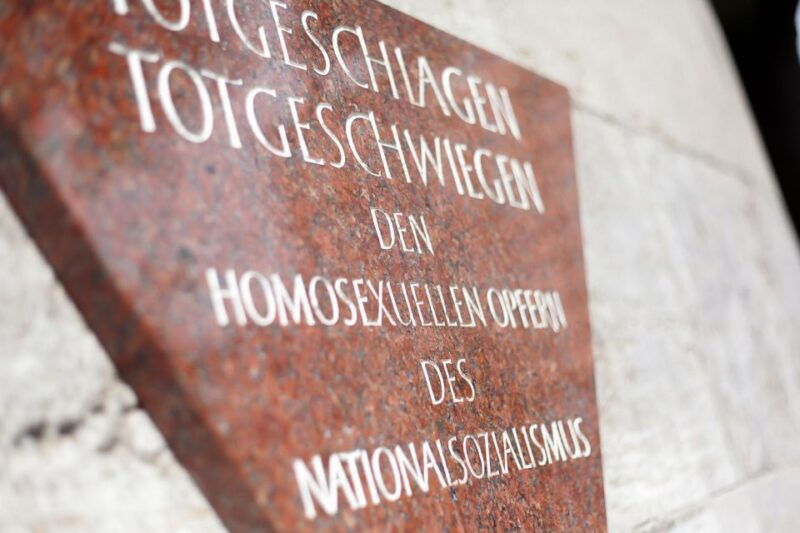
- Explore Schöneberg, the heart of Berlin’s vibrant LGBTQ+ community, and discover its rich history dating back to the late 19th century.
- Visit Eldorado, an iconic gay and transvestite bar that thrived during the Weimar Republic and remains an important LGBTQ+ landmark in Berlin.
- Honor the contributions of gay heroes, such as Magnus Hirschfeld, who fought against the criminalization of homosexuality and advocated for LGBTQ+ rights.
- Learn about Magnus Hirschfeld’s pioneering Institute for Sexual Science, which was ransacked and destroyed by the Nazis in 1933.
- Visit the Holocaust memorial that honors the estimated 100,000 gay men imprisoned and 5,000-15,000 killed in concentration camps due to their sexual orientation.
Exploring Schöneberg
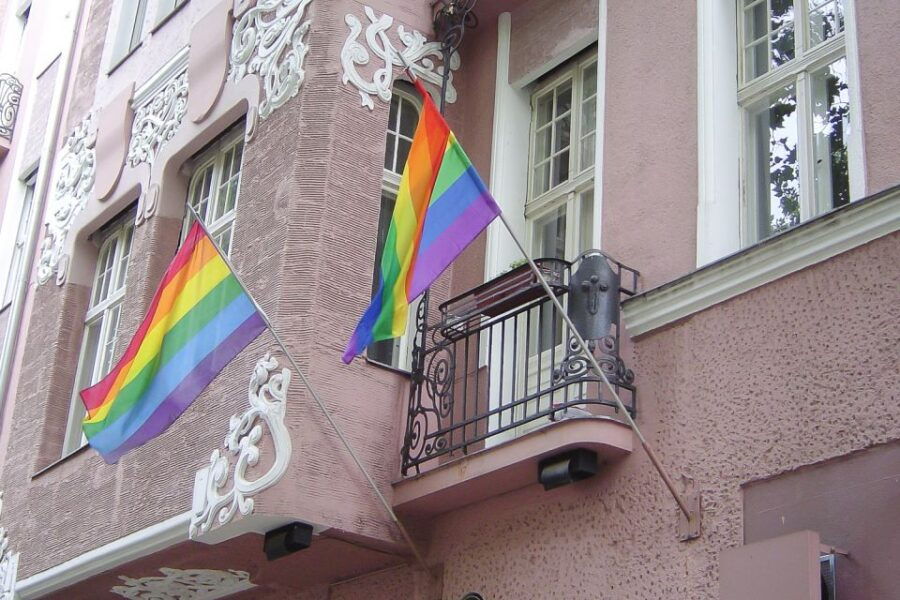
While Schöneberg has long been the heart of Berlin’s LGBTQ+ community, the tour begins by exploring the neighborhood’s rich history.
Guides point out Magnus Hirschfeld’s former Institute for Sexual Science, shuttered by the Nazis in 1933. Nearby, visitors learn about the notorious "Section 175" of the German penal code that criminalized homosexuality.
Guides highlight the shuttering of Hirschfeld’s Institute for Sexual Science by the Nazis and the criminalization of homosexuality under Section 175.
The tour then visits Eldorado, one of Berlin’s oldest gay and transvestite bars, which thrived during the Weimar Republic’s liberal era.
Throughout, participants gain insight into the city’s pioneering role in the gay rights movement dating back to the late 19th century.
Into exploring Berlin on foot? Check out these other walking experiences we've looked at
Visiting Eldorado
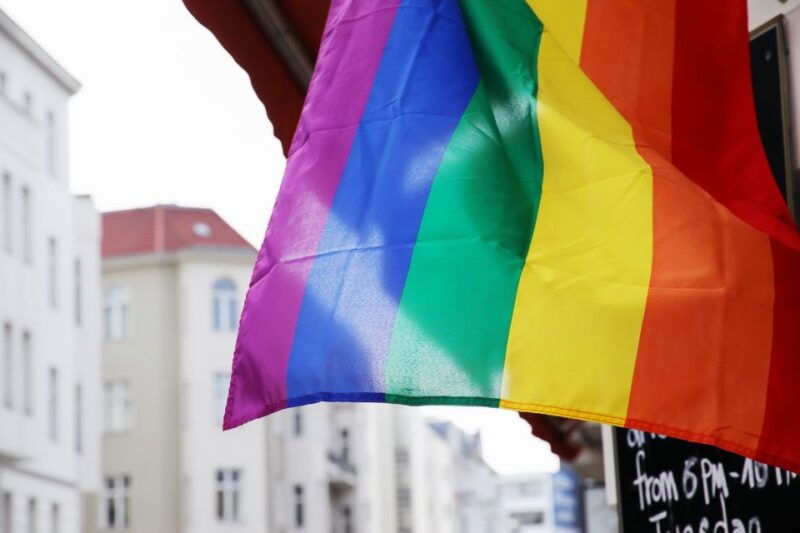
The tour then visits Eldorado, one of Berlin’s oldest gay and transvestite bars. This iconic venue played a vital role in Berlin’s queer history:
-
Eldorado opened in 1920s and was a hub for Berlin’s artistic and LGBTQ+ communities during the Weimar Republic.
-
The bar was forcibly closed by the Nazis in 1933 and later reopened after World War II, remaining an important LGBTQ+ landmark.
-
Today, Eldorado continues to embody Berlin’s vibrant queer culture, offering a glimpse into the city’s rich LGBTQ+ past and present.
Honoring Gay Heroes
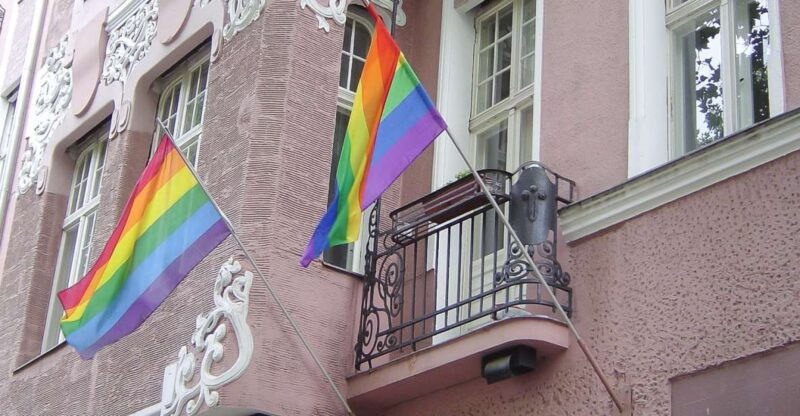
As the tour progresses, visitors learn about the pivotal contributions of gay heroes who championed LGBTQ+ rights in Berlin.
The guides highlight Magnus Hirschfeld, whose Institute for Sexual Science was a pioneering hub for research and advocacy.
Visitors also discover the legacy of activists who fought against the notorious "Section 175" of the German penal code, which criminalized male homosexuality.
The tour then leads to the Holocaust memorial, honoring those persecuted for their sexual orientation.
Through these stories, the tour provides a deeper understanding of Berlin’s rich queer history and the brave individuals who paved the way for progress.
Discovering Magnus Hirschfeld’s Legacy
One of the highlights of the Queer Berlin Walking Tour is exploring the legacy of Magnus Hirschfeld, a pioneering figure in the early LGBTQ+ rights movement.
Hirschfeld founded the Institute for Sexual Science in 1919, an influential organization that conducted research and advocated for sexual minorities. The tour visits the site of the institute, which was infamously ransacked and destroyed by the Nazis in 1933.
Participants also learn about Hirschfeld’s groundbreaking work, including:
-
Advocating for the decriminalization of homosexuality in Germany
-
Classifying gender and sexual identities beyond the male-female binary
-
Inspiring the modern LGBTQ+ rights movement with his progressive ideas
Traversing Tiergarten
After exploring the legacy of Magnus Hirschfeld, the tour takes participants through Tiergarten, Berlin’s best-known gay meeting spot.
The vast urban park provides a serene setting to learn about its storied history as a hub for the queer community. The guide shares anecdotes of how the park’s secluded pathways and wooded areas served as a discreet gathering place, even during times when homosexuality was criminalized.
Walkers gain a deeper understanding of the resilience and pride of Berlin’s LGBTQ+ pioneers who carved out safe spaces despite social and legal oppression.
Resilient LGBTQ+ pioneers in Berlin carved out safe spaces amidst social and legal oppression.
The tour continues its journey through this symbolic landscape.
Remembering the Persecuted
The tour then proceeds to the Holocaust memorial for persecuted homosexuals, a somber reminder of the suffering endured by LGBTQ+ individuals under Nazi rule.
The guide explains the significance of the memorial, which features a gray concrete slab with a small window allowing visitors to peer inside.
-
The memorial honors the estimated 100,000 gay men imprisoned and 5,000-15,000 gay men killed in the Nazi concentration camps.
-
It serves as a poignant tribute to those whose lives were tragically cut short due to their sexual orientation.
-
Visitors are encouraged to reflect on the historical persecution and the ongoing fight for LGBTQ+ rights.
Understanding Berlin’s Queer History
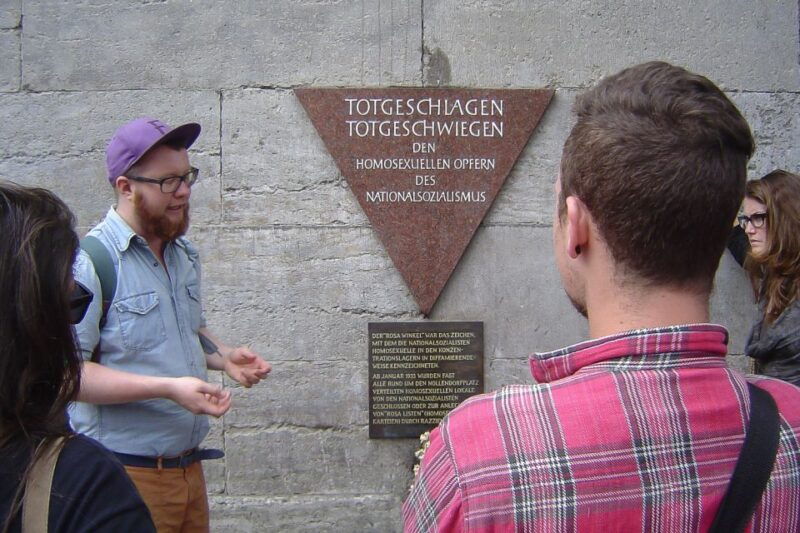
Although Berlin has long been known as the queer capital of Europe, the city’s LGBTQ+ history dates back to the late 19th century. The pioneering work of Magnus Hirschfeld and his Institute for Sexual Science laid the groundwork for early gay rights movements. However, the Nazi regime’s crackdown on homosexuality led to persecution and the closure of Hirschfeld’s institute in 1933. Despite this, Berlin’s vibrant queer culture persisted, with figures like Marlene Dietrich and Christopher Isherwood leaving an indelible mark on the city’s cabaret scene. Today, Berlin remains a beacon of LGBTQ+ acceptance and celebration.
| Year | Milestone |
| — | — |
| 1897 | Magnus Hirschfeld founds the Scientific-Humanitarian Committee, the first gay rights organization. |
| 1919 | Hirschfeld opens the Institute for Sexual Science, a pioneering sexology research center. |
| 1933 | The Nazi regime shuts down Hirschfeld’s institute and begins persecuting LGBTQ+ individuals. |
| 1969 | The Stonewall riots in New York City spark the modern LGBTQ+ rights movement worldwide. |
Frequently Asked Questions
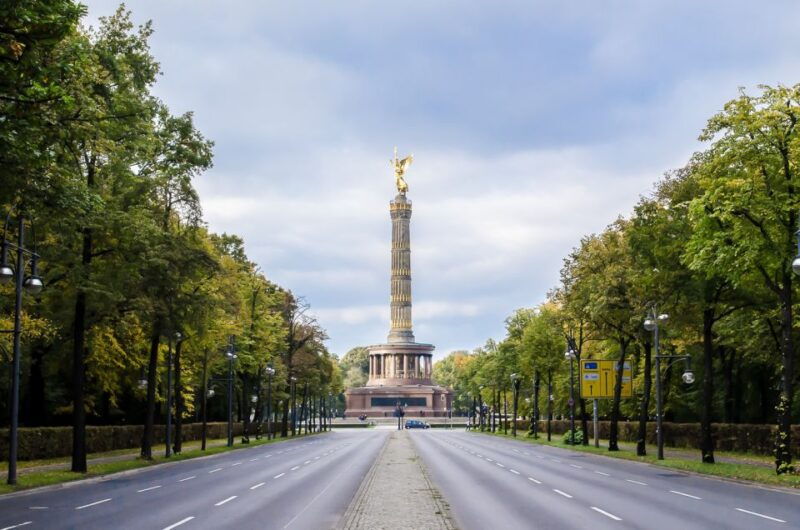
Is the Tour Wheelchair Accessible?
The tour is not explicitly stated to be wheelchair accessible. Visitors with mobility needs should contact the tour operator in advance to inquire about accessibility accommodations and make arrangements if necessary.
Can I Bring My Pet on the Tour?
Unfortunately, pets are not allowed on the tour. The tour operator’s policy is to maintain a comfortable environment for all participants. Service animals, however, are welcome with proper documentation.
Do the Guides Provide Snacks or Refreshments?
The tour guides do not provide any snacks or refreshments during the walking tour. Participants should plan to bring their own food and drinks to sustain themselves throughout the 3-3.5 hour duration of the experience.
Is the Tour Suitable for Young Children?
The tour likely isn’t suitable for young children. It focuses on LGBTQ+ history and culture, which may not be age-appropriate. Plus, the 3-3.5 hour duration could be too long for younger participants.
What Is the Dress Code for the Tour?
There is no specified dress code for the tour. Participants can wear whatever they feel comfortable in, as the focus is on exploring the city’s history and culture rather than adhering to a particular dress code.
The Sum Up
The Queer Berlin Walking Tour provides an insightful journey through the city’s rich LGBTQ+ history, honoring the pioneers who paved the way and remembering those who suffered persecution. Participants explore iconic landmarks, gain deeper understanding of ongoing struggles, and celebrate Berlin’s progressive legacy. It’s a thought-provoking experience that sheds light on the resilience and diversity within the queer community.
You can check availability for your dates here:More Walking Tours in Berlin
More Tickets in Berlin
More Tour Reviews in Berlin
Still browsing? Here are more Berlin experiences we've covered recently
- Berlin’s 4 Best Vegan & Vegetarian Tours (With Prices & Reviews)
- 12 Best Drinking Tours In Berlin
- 6 Best Shopping & Market Tours In Berlin
- Berlin’s 10 Top Photography Experiences (With Prices)
- 14 Of The Best Food Tours In Berlin
- The 12 Most Popular Tours & Experiences In Berlin
- Berlin’s 10 Best Workshops & Classes (With Prices & Reviews)
- We Rank The 13 Best Tours In Berlin
- The Top 4 Wine Tours In Berlin
- The 14 Most Popular Walking Tours In Berlin
- 12 Best Cruises And Boat Tours In Berlin (With Reviews & Prices)
- Berlin’s 4 Best Sailing Experiences (With Prices & Reviews)
